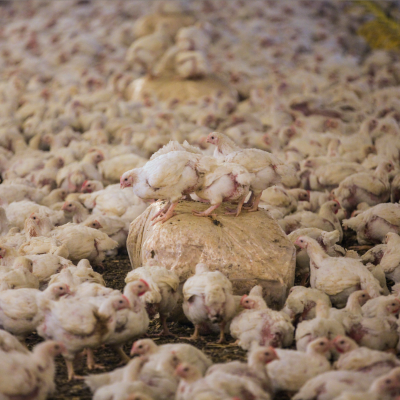Chicken is the most popular meat in the UK and its consumption is growing. Our new report shows the true costs of production on this scale.
Chicken is an affordable source of protein and has been recommended by some as a good choice for health and the environment instead of red meat. However, our latest report ‘We need to talk about chicken,’ shows that recommending this switch can lead to big but often hidden consequences for the environment, our health, animal welfare and rural livelihoods.
Chicken production and consumption keeps growing
Poultry overtook red meat sales for the first time in 2017 and now accounts for over 50% of meat consumption. 850 million chickens are reared for meat in the UK each year. 95% of this is in intensive indoor units. Chicken production is a big and global industry, imports of poultry products into the UK are over twice the tonnage of exports.
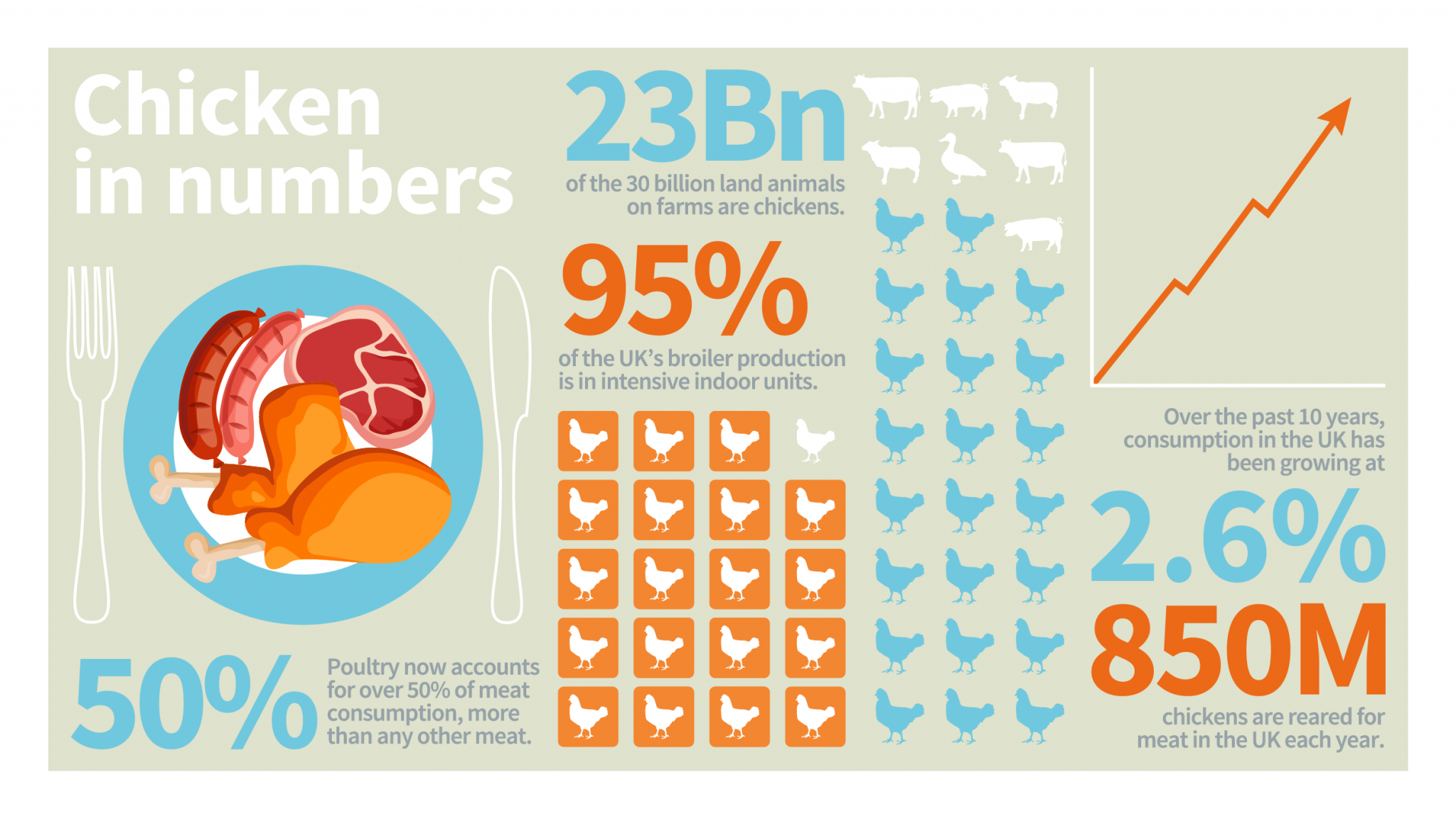
Chicken consumption accelerates deforestation and climate change
Chicken has been touted as a healthy and sustainable meat, but it has serious trade-offs that are multiplied many times due to the vast amount of chicken produced. Our growing appetite for chicken accelerates climate change through deforestation to supply huge amounts of soy, a major part of the modern-day chicken’s diet.
Martin Lines, UK Chair of the Nature Friendly Farming Network has said: ‘As we see the public being encouraged to move from red meat to white meat we must look closely at the environmental and climate footprint of the animal feed inputs coming from around the world.'
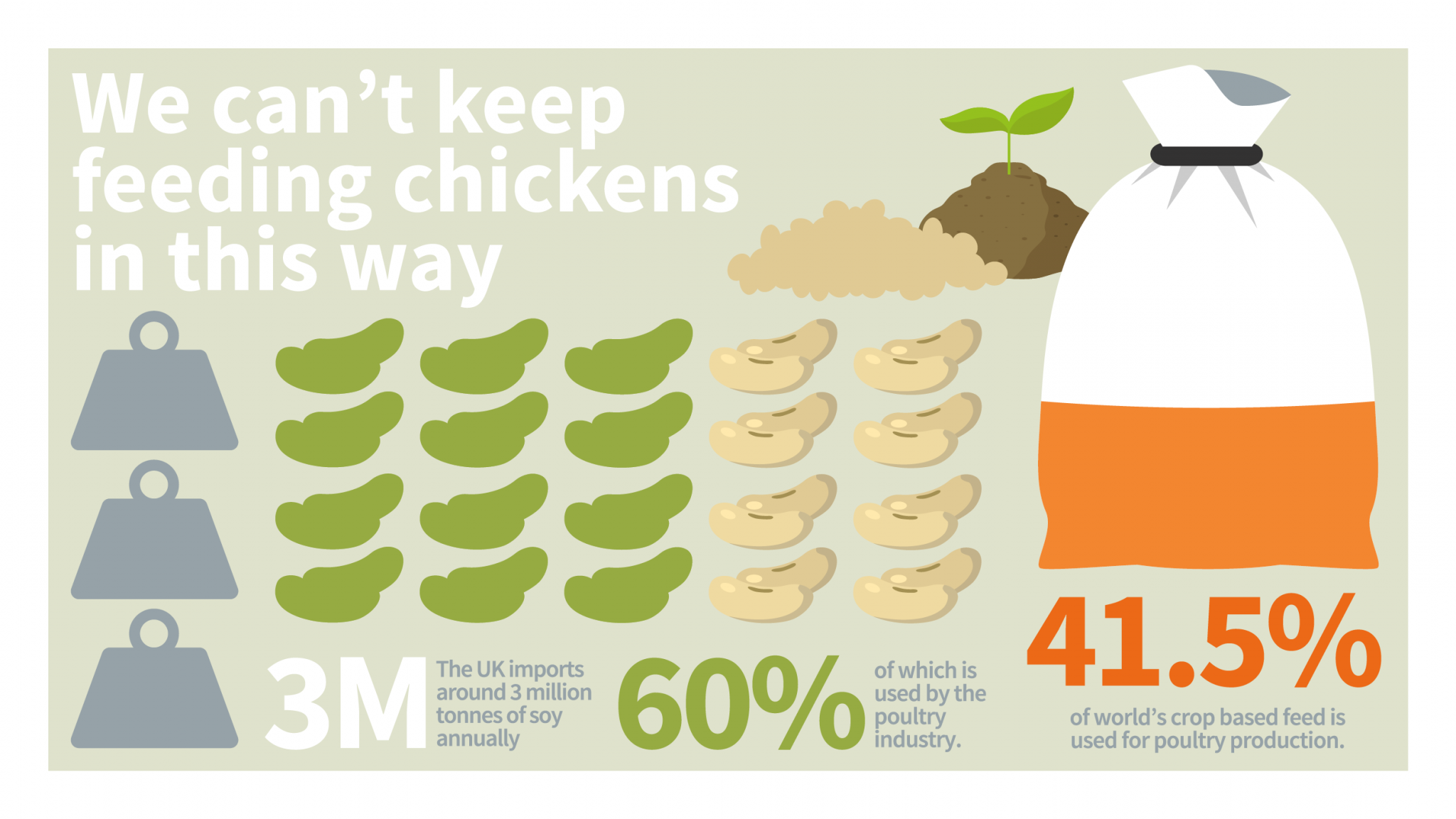 The UK imports around 3 million tonnes of soy annually. It is estimated that up to 60% of soy is used by the poultry industry. Its production is a major driver of deforestation and land-use change in South America. Over half of the soy used to feed poultry in the UK is not certified deforestation free.
The UK imports around 3 million tonnes of soy annually. It is estimated that up to 60% of soy is used by the poultry industry. Its production is a major driver of deforestation and land-use change in South America. Over half of the soy used to feed poultry in the UK is not certified deforestation free.
Patrick Holden, Founding Director of the Sustainable Food Trust has said: ‘In view of the widespread consumer confusion in relation to differentiating between sustainable and unsustainable livestock production systems, the Sustainable Food Trust strongly welcomes the Eating Better Alliance’s new publication.’
‘The report provides important and accessible new information to the millions of consumers who are currently confused in relation to differentiating between sustainable and unsustainable livestock production systems.’
Chicken is no longer the healthy choice
Shirley Cramer, Chief Executive of the Royal Society for Public Health has said: ‘We know that for human and planetary health we should all be eating less and better meat and more plants, yet our chicken consumption has been increasing as a substitute for red meat. We need to get the message out that chickens today have over twice the amount of fat of chickens consumed in 1970 and have fewer essential nutrients, they are not the answer.’

The fat content of chicken increased from 8.6 grams of fat per 100 grams in 1970 to 22.8 grams of fat in 2004. Chicken now offers 69% less iron than in 1940 and five times less omega-3 than in 1970.
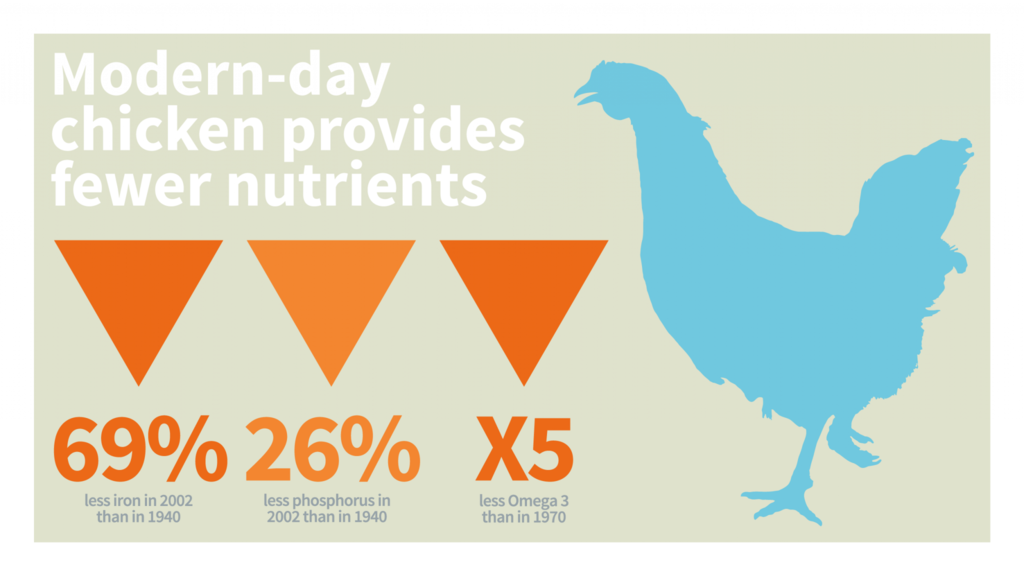
More hidden costs
The report also highlights other, often hidden, costs of modern chicken production for consumers, farmers, the environment and animals, with over 27% of UK chickens having levels of lameness that are likely to be painful.
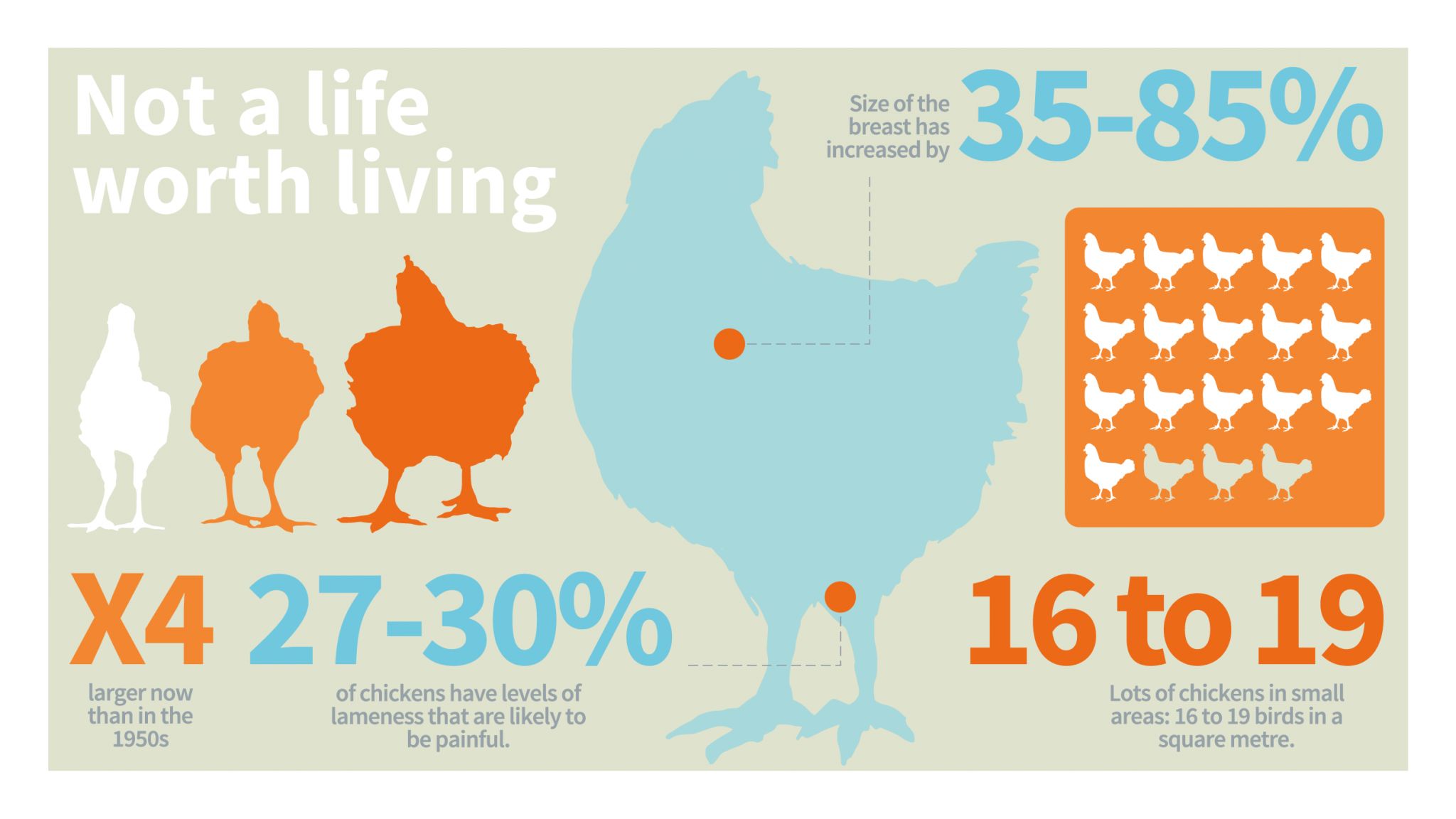
Time to change the trajectory
Simon Billing, Executive Director of Eating Better has said: ‘Now feels like a crossroads for UK agriculture alongside the climate and biodiversity crises. We need to call out that further growth of chicken production is not a health or sustainability solution. There is a need to support nature friendly farming, with less and better meat, that restores our soils, regenerates nature and provides good rural jobs.’
